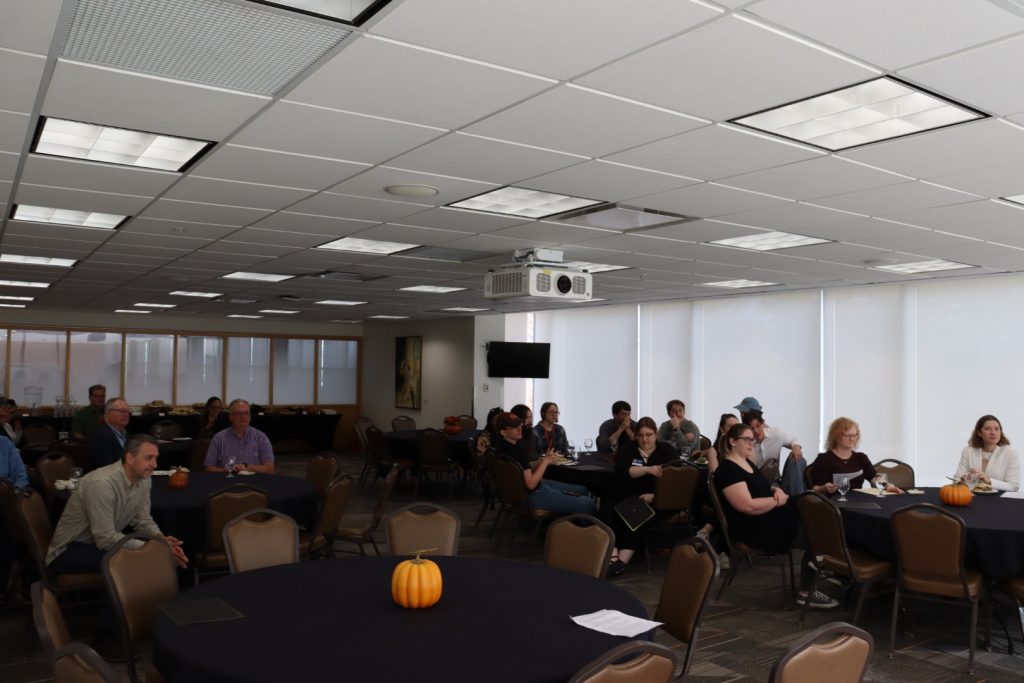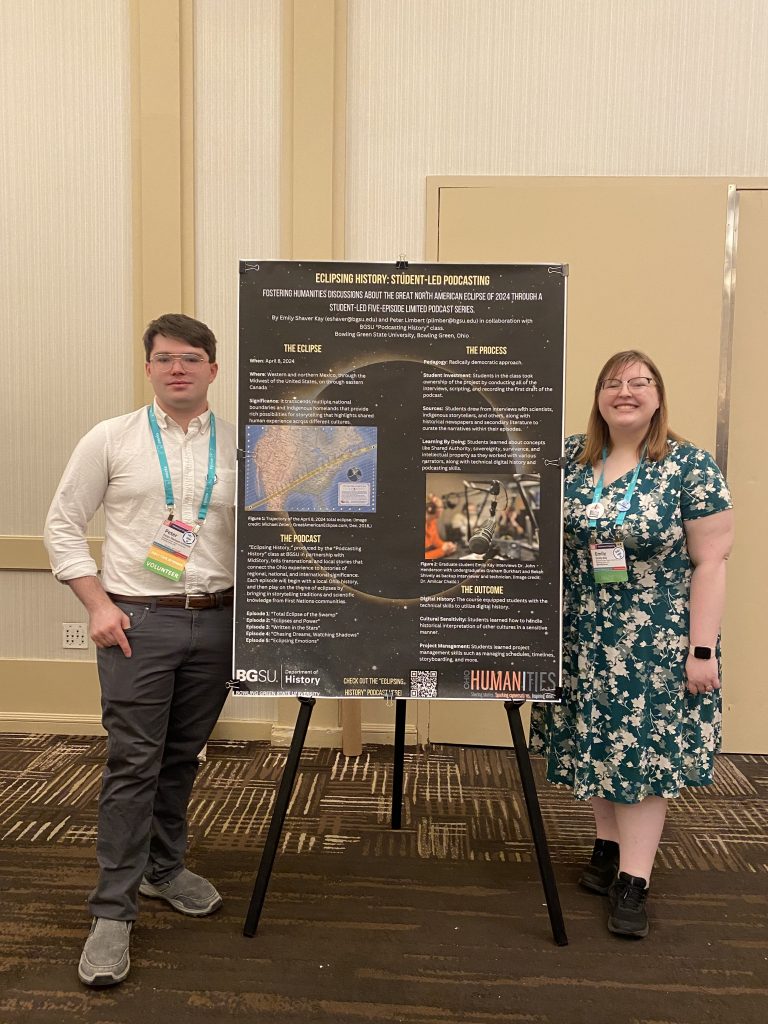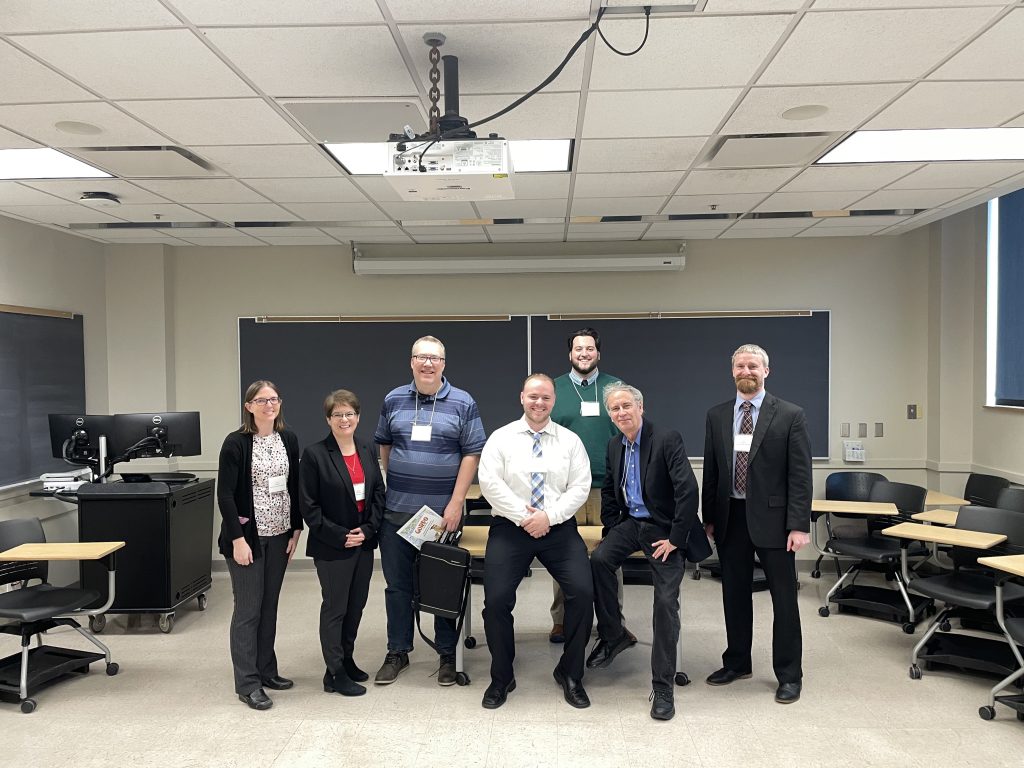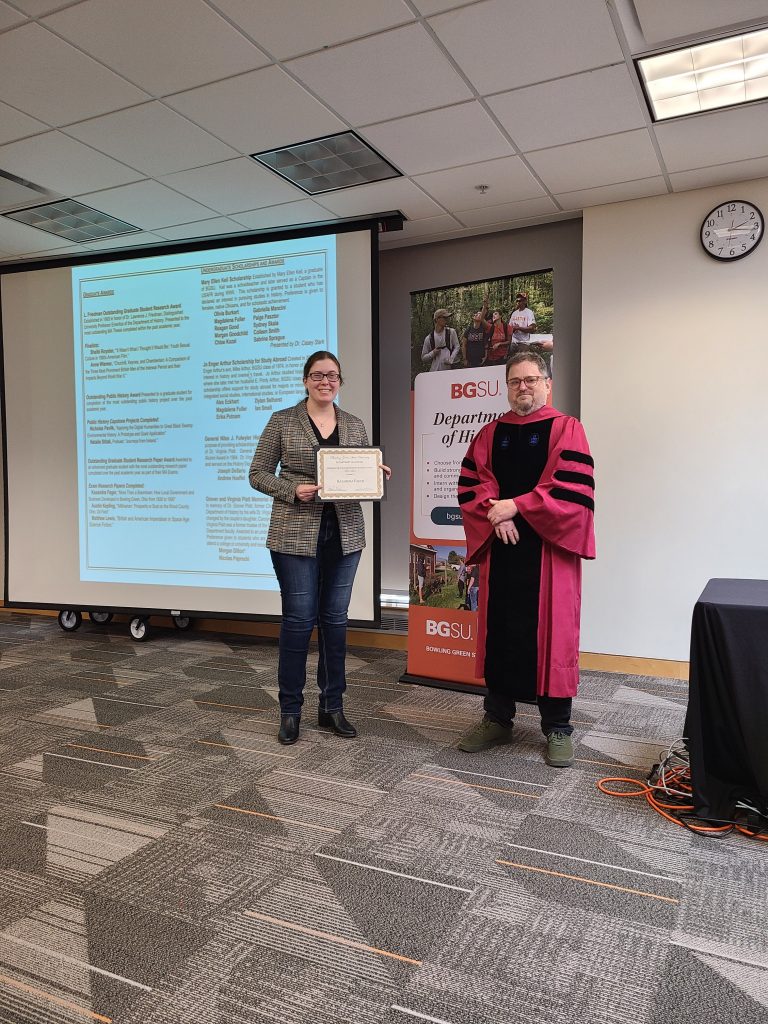By Kasandra Fager and Emily Shaver
Imagine! Four BGSU students jamming out to Hamilton on the home way from Chicago singing about immigrants, truth, and democracy. This musical is found in any historian’s collection, but there is more to it than just a piano and a sheet of music. The silences and difficult topics that are revealed in this musical are the same themes that were revealed in our trip to Chicago. Like they say, “History Has Its Eyes on You” and we certainly took that to heart!
Over Spring Break, four history graduate students traveled to Chicago to embark on a 72-hour public history experience. Supported by the department’s student organization, Phi Alpha Theta, and BGSU’s Student Engagement Office, they visited the Chicago History Museum, the Field Museum of Natural History, and the Illinois Holocaust Museum. We may have lost our way as we tried to find the parking lot near our hotel and visited the bean in the rain, but we made it to the other side with Giordano’s deep-dish pizza in our stomachs and a new appreciation for Chicago’s history.
Continue reading →






